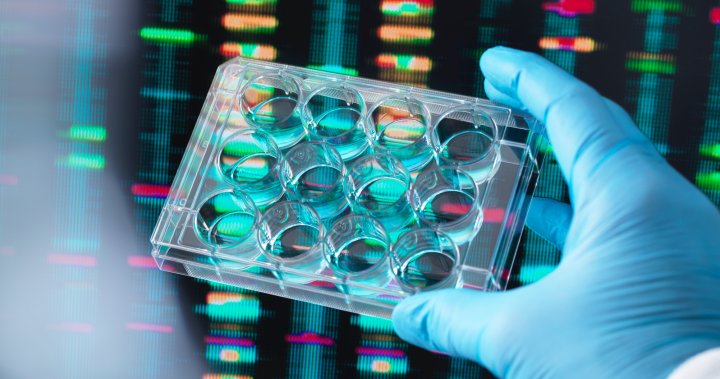
Full human genome mapped for 1st time in major scientific breakthrough
Global News
This full, no-gaps snapshot of the human genome consists of at least 3 billion base pairs of DNA and just under 20,000 protein-encoding genes.
When the Human Genome Project sequenced 92 per cent of the human genome in 2003, it revolutionized our understanding of genetics and its role in human health, evolution and biology. Nearly two decades later, scientists have finished the job, lifting the veil off of the remaining eight per cent of our species’ genome.
The research was published Thursday in the journal Science and was the result of collaboration between nearly 100 scientists from the Telomere-to-Telomere (T2T) Consortium. These new insights contributed 400 million letters of previously unsequenced DNA, paving the way for medical breakthroughs and an even deeper understanding of how our species evolved.
The T2T Consortium was organized in 2019 by Karen Miga, an assistant professor of biomolecular engineering at UC Santa Cruz, and Adam Phillippy, the head of gene informatics at the National Human Genome Research Institute. The team published six papers in total, outlining the results of their research.
The full, no-gaps human genome that the consortium compiled, called T2T-CHM13, consists of more than 3 billion base pairs of DNA and just under 20,000 protein-encoding genes.
But what does this mean for the average person?
Having the full genome at the disposal of scientists and researchers will allow the medical community to analyze genetic variation in individual people compared to the base genome, and investigate how those variations may play a role in disease.
The Human Genome Project cost $450 million to execute, this recent research cost a few million, and Phillippy said he hopes that sequencing an individual’s genome can become a routine medical procedure costing less than $1,000 within the next 10 years.
The scientific director of the National Human Genome Research Institute, Charles Rotimi, said that these advancements in mapping the genome are “moving us closer to individualized medicine for all humanity.”



